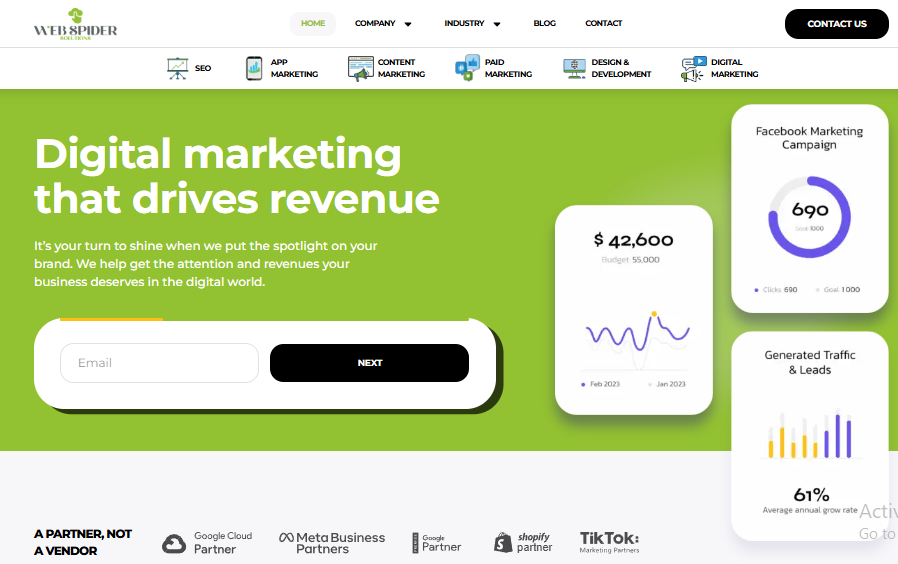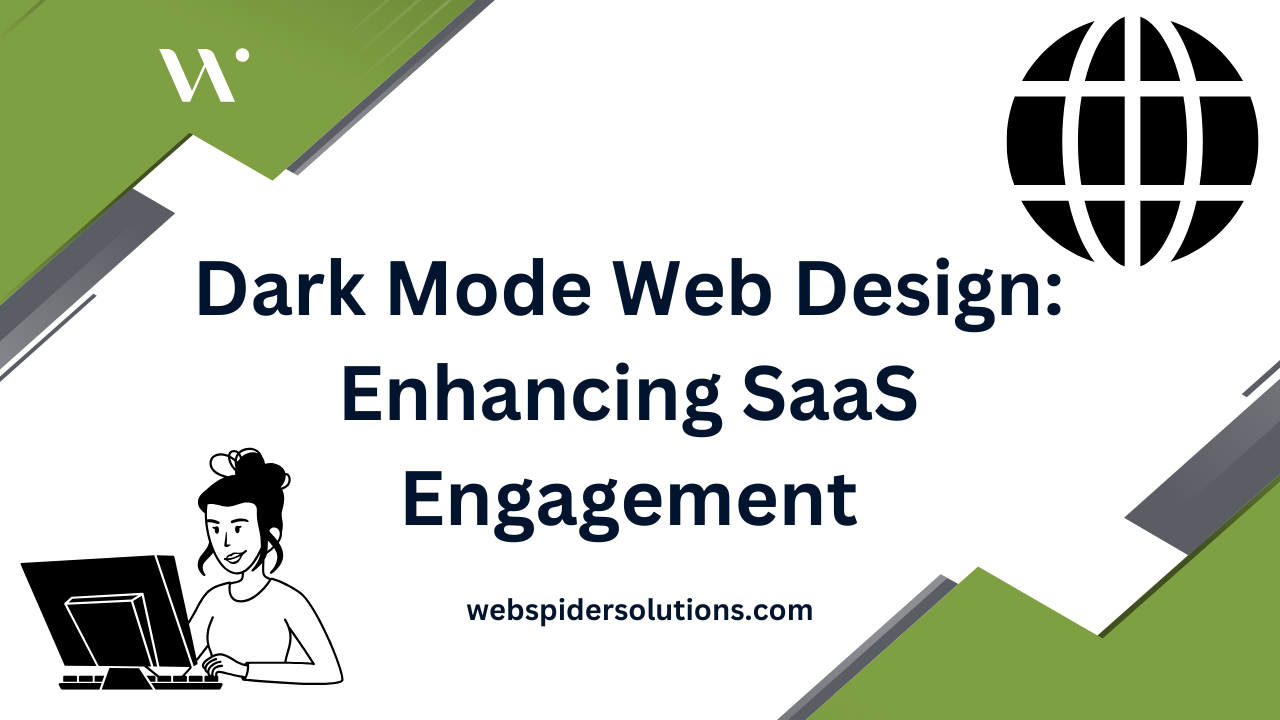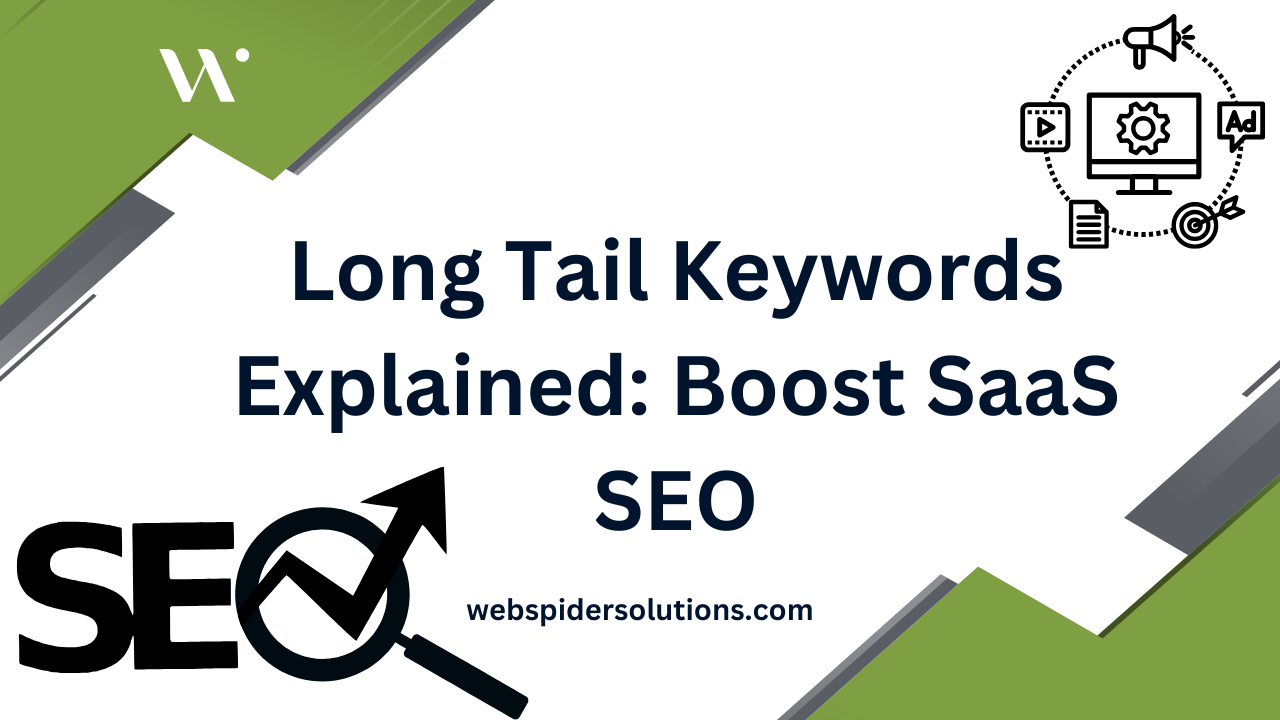Digital marketing is moving faster than ever with businesses racing to grab attention in a crowded online world. Suddenly, 91% of companies are using video for marketing and AI predicts exactly what each customer wants before they even know it themselves. But while everyone expects digital marketing to be all about more automation and flashy content, the real story is how trust, personal touch, and eco-friendly strategies are stealing the spotlight for 2025.
Table of Contents
- Embrace Artificial Intelligence In Marketing
- Focus On Personalization To Engage Customers
- Leverage Video Content For Greater Reach
- Optimize For Voice Search And Smart Devices
- Prioritize Sustainability In Your Marketing Strategy
- Utilize Data Analytics For Better Decision Making
- Adapt To New Privacy Regulations To Build Trust
Quick Summary
| Takeaway | Explanation |
|---|---|
| Embrace AI to enhance marketing | Utilize AI for personalization, automation, and insights to outperform competitors in 2025. |
| Prioritize hyper-targeted personalization | Focus on individualized experiences that cater to customer preferences and behaviors for better engagement. |
| Leverage video for effective communication | Use video content as a key tool for preserving brand messaging, appealing to consumer preferences. |
| Optimize for voice search | Adapt digital content to align with conversational queries and voice search technology trends. |
| Implement ethical data privacy practices | Build trust by transparently managing consumer data and adhering to emerging privacy regulations. |
1: Embrace Artificial Intelligence in Marketing
Artificial Intelligence (AI) is rapidly transforming digital marketing strategies, offering unprecedented capabilities for personalization, automation, and customer engagement. The coming years will witness AI becoming an integral part of marketing ecosystems, enabling businesses to deliver hyper-targeted experiences and make data-driven decisions with remarkable precision.
Companies are increasingly leveraging AI technologies to understand customer behavior, predict trends, and create more intelligent marketing campaigns. Explore our deep dive into AI and machine learning’s impact on modern SEO to understand how these technologies are reshaping digital marketing strategies.
According to McKinsey Global Institute, AI adoption in marketing has accelerated dramatically. Key applications that will define digital marketing trends in 2025 include:
- Predictive Customer Analytics: Using machine learning algorithms to forecast consumer behavior and preferences
- Personalized Content Generation: AI tools creating tailored marketing materials at scale
- Intelligent Chatbots and Customer Service: Advanced conversational AI providing 24/7 customer support
- Dynamic Pricing Strategies: Real-time price optimization based on market demand and customer insights
Marketers who successfully integrate AI will gain significant competitive advantages. By automating repetitive tasks, generating actionable insights, and creating more personalized customer experiences, businesses can achieve higher engagement rates, improved conversion metrics, and more efficient marketing spend.
The future of digital marketing is not about replacing human creativity but augmenting it with intelligent technologies that provide deeper understanding and more precise targeting capabilities.
2: Focus on Personalization to Engage Customers
Personalization has transformed from a marketing buzzword to a critical strategy for customer engagement. In 2025, businesses that deliver hyper-targeted experiences will differentiate themselves in increasingly crowded digital marketplaces. Customers now expect interactions tailored specifically to their preferences, behaviors, and unique needs.
Learn how to build brand loyalty with personalized strategies that resonate deeply with your target audience. According to Deloitte Digital, companies implementing advanced personalization techniques can see revenue increases of up to 15% and customer retention improvements of 20%.
Successful personalization strategies go far beyond using a customer’s first name in an email. Modern approaches leverage sophisticated data analytics and AI to create truly individualized experiences. Key personalization tactics for 2025 include:
- Predictive Content Recommendations: Dynamically serving content based on user’s past interactions and preferences
- Contextual Real-Time Messaging: Delivering targeted communications aligned with customer’s immediate needs and journey stage
- Customized User Interfaces: Adapting website and app experiences to individual user behaviors and characteristics
Moreover, privacy considerations remain paramount. Businesses must balance personalization with transparent data practices, giving customers control over their information. Consent-driven personalization will become the standard, where users actively choose the level of customization they want.
The future of digital marketing is not about broadcasting generic messages but creating meaningful, individually relevant connections that make customers feel truly understood and valued.
3: Leverage Video Content for Greater Reach
Video content continues to dominate digital marketing strategies, becoming an essential tool for engaging audiences and communicating brand messages quickly and effectively. Explore our comprehensive video content marketing strategies to maximize your digital presence.
According to HubSpot Research, 91% of businesses now use video as a marketing tool, with consumers indicating they prefer video content over traditional text-based marketing materials. This trend is driven by several key factors that make video an unparalleled communication medium.
Embracing video marketing in 2025 means understanding its evolving landscape and strategic deployment. Emerging video content trends include:
- Short-Form Interactive Videos: Leveraging platforms like TikTok and Instagram Reels for quick, engaging content
- Live Streaming: Creating real-time connections with audiences through authentic, unscripted experiences
- Personalized Video Messaging: Developing targeted video content that speaks directly to specific audience segments
Technological advancements are making video production more accessible and sophisticated. AI-powered editing tools, virtual reality integrations, and advanced analytics are transforming how businesses create and measure video content effectiveness.
Successful video marketing requires more than just creating content. It demands strategic storytelling, understanding audience preferences, and delivering value within seconds. Businesses that master concise, compelling video narratives will capture audience attention and drive meaningful engagement in an increasingly competitive digital landscape.
4: Optimize for Voice Search and Smart Devices
Voice search technology is rapidly transforming how consumers interact with digital platforms, making voice optimization a critical strategy for businesses in 2025. Explore our comprehensive guide on preparing for the future of search marketing to stay ahead of emerging technological trends.
According to Gartner Research, by 2025, more than 80% of conversational AI interactions will involve advanced natural language processing capabilities. This shift demands a fundamental rethinking of digital marketing strategies.
Optimizing for voice search requires understanding the unique characteristics of spoken queries. Consumers using voice assistants typically employ more conversational and long-tail search phrases compared to traditional text searches. This means marketers must adapt their content strategies to match natural language patterns.
Key considerations for voice search optimization include:
- Conversational Keyword Targeting: Focusing on natural, question-based phrases people actually speak
- Local SEO Emphasis: Ensuring business information is accurate and easily discoverable through voice queries
- Featured Snippet Optimization: Structuring content to improve chances of being selected as voice search results
Multilingual voice search is also becoming increasingly important, with smart devices supporting multiple languages and dialects. Businesses that can provide seamless, context-aware voice interactions across different linguistic environments will gain significant competitive advantages.
Successful voice search optimization is not just about technical implementation but creating genuinely helpful, conversational content that meets users’ immediate informational needs. As smart devices become more integrated into daily life, brands that can communicate effectively through voice interfaces will build stronger, more intuitive connections with their audiences.
5: Prioritize Sustainability in Your Marketing Strategy
Sustainability has evolved from a niche concern to a central consideration in digital marketing strategies. Learn how to build a comprehensive marketing strategy that incorporates sustainable practices and meets modern consumer expectations.
According to Nielsen Global Sustainability Report, 73% of global consumers say they would definitely or probably change their consumption habits to reduce environmental impact. This shift demands that businesses integrate genuine sustainability into their core marketing narratives.
Consumers are no longer satisfied with superficial green messaging. They demand transparent, measurable commitments to environmental and social responsibility. Modern marketing strategies must authentically demonstrate a brand’s commitment to sustainable practices across all operational dimensions.
Key sustainability marketing approaches for 2025 include:
- Carbon Footprint Transparency: Publicly sharing and actively reducing digital marketing’s environmental impact
- Ethical Supply Chain Communication: Highlighting responsible sourcing and production practices
- Purpose-Driven Brand Positioning: Aligning marketing messages with meaningful social and environmental goals
Digital marketing’s environmental consciousness extends beyond traditional green marketing. It involves optimizing digital infrastructure, reducing data center energy consumption, and creating content that promotes sustainable consumer behaviors.
Brands that successfully integrate sustainability will not just attract environmentally conscious consumers but also build long-term trust and credibility. The most effective sustainability marketing goes beyond promotion it represents a genuine commitment to creating positive global change through responsible business practices.
6: Utilize Data Analytics for Better Decision Making
Data analytics has become the cornerstone of intelligent digital marketing strategies, transforming raw information into actionable insights that drive business growth. Explore our comprehensive guide to analytics for digital marketing success and unlock the power of data-driven decision making.
According to Forrester Research, companies that leverage advanced analytics are 3x more likely to achieve significant business improvements and outperform their competitors. Predictive analytics and machine learning are revolutionizing how businesses understand and engage with their target audiences.
In 2025, successful marketing teams will move beyond traditional metrics, embracing more sophisticated approaches to data interpretation. The goal is not just collecting data, but transforming it into meaningful strategic insights that drive real business outcomes.
Key data analytics strategies for digital marketing include:
- Predictive Customer Behavior Modeling: Using advanced algorithms to forecast consumer trends and preferences
- Real-Time Performance Tracking: Implementing dynamic dashboards that provide immediate insights into marketing campaign effectiveness
- Multichannel Attribution Analysis: Understanding the complex customer journey across different digital touchpoints
Advanced data integration will become crucial, combining information from multiple sources to create a holistic view of customer interactions. This approach enables marketers to develop more personalized, targeted strategies that resonate with specific audience segments.
The future of digital marketing belongs to those who can not just collect data, but interpret it intelligently. Businesses that develop robust data analytics capabilities will gain unprecedented ability to predict market trends, personalize customer experiences, and make more informed strategic decisions.
7: Adapt to New Privacy Regulations to Build Trust
Privacy regulations are fundamentally reshaping digital marketing landscapes, demanding businesses develop transparent and ethical data practices. Learn how to navigate complex privacy requirements in your marketing strategy to maintain customer trust and compliance.
According to Gartner Research, by 2025, 75% of the global population will have comprehensive consumer privacy legislation protecting their personal data. This dramatic shift requires marketers to reimagine data collection, usage, and communication strategies.
Consumers are increasingly demanding greater control over their personal information, making privacy a competitive differentiator for businesses. Companies that demonstrate genuine commitment to data protection will build stronger, more trustworthy relationships with their audiences.
Critical privacy adaptation strategies for digital marketing include:
- Explicit Consent Mechanisms: Implementing clear, granular opt-in processes for data collection
- Data Minimization: Collecting only essential information required for specific marketing purposes
- Transparent Data Usage Policies: Providing clear, understandable explanations of how customer data is used
Technological innovations are emerging to support privacy-first marketing approaches. Advanced anonymization techniques, decentralized data management, and AI-powered consent management tools will become standard practice for businesses navigating the complex privacy landscape.
Successful digital marketing in 2025 will prioritize building trust through responsible data practices. By treating customer privacy as a fundamental right rather than a compliance checkbox, businesses can create more meaningful, respectful relationships with their audiences.
Below is a comprehensive table summarizing the main digital marketing trends, benefits, and key implementation aspects you need to know for 2025.
| Trend | Key Focus/Strategy | Benefits/Outcomes |
|---|---|---|
| Embrace Artificial Intelligence (AI) | Use AI for predictive analytics, automation, chatbots, and personalized content | Hyper-targeted campaigns, higher efficiency, better insights |
| Prioritize Personalization | Hyper-targeted experiences, real-time messaging, customized user interfaces | Enhanced customer engagement, increased retention, higher revenue |
| Leverage Video Content | Short-form, live, and personalized videos; advanced production tools | Greater reach, improved brand messaging, higher consumer preference |
| Optimize for Voice Search | Conversational keyword targeting, local SEO, multilingual optimization | Higher visibility via smart devices, better user experience |
| Prioritize Sustainability | Authentic green messaging, carbon footprint transparency, ethical supply chains | Builds trust, appeals to eco-conscious consumers, positive brand image |
| Utilize Data Analytics | Predictive analytics, real-time dashboards, multichannel attribution | Informed decisions, refined targeting, significant business improvements |
| Adapt to Privacy Regulations | Consent mechanisms, data minimization, transparent policies, privacy-first tech | Builds trust, meets compliance, fosters stronger customer relationships |
Ready to Transform Your Digital Marketing for 2025?
You have just explored the top digital marketing trends like artificial intelligence, data analytics, video content, and personalization that are redefining business growth in 2025. The challenge is no longer staying informed but taking action. Are you struggling to turn AI, advanced analytics, and modern customer engagement techniques into real growth for your business? If you want to lead the digital race instead of playing catch-up, it is time to get expert support. For even more guidance on new tech trends, visit our Artificial Intelligence Archives.

Let Web Spider Solutions help you turn these must-know trends into results that matter. Our team delivers data-driven strategies, tailored campaigns, and a deep understanding of evolving technologies that help you stand out in a crowded market. Ready to boost your traffic, increase leads, and build future-ready marketing? Get started now at Web Spider Solutions and secure your advantage for 2025. Explore more stories and client successes at our Stories Archives.
Frequently Asked Questions
What are the key digital marketing trends for 2025?
The key trends for 2025 include embracing artificial intelligence, focusing on personalization, leveraging video content, optimizing for voice search, prioritizing sustainability, utilizing data analytics, and adapting to new privacy regulations.
How can businesses effectively use AI in their marketing strategies?
Businesses can leverage AI for predictive customer analytics, personalized content generation, intelligent chatbots for customer service, and dynamic pricing strategies to enhance customer engagement and optimize marketing efforts.
What is the importance of personalization in digital marketing?
Personalization is crucial as it helps create hyper-targeted experiences that resonate with consumers, leading to increased revenue, customer retention, and brand loyalty in an increasingly competitive market.
How should companies prepare for voice search optimization?
Companies should focus on conversational keyword targeting, emphasize local SEO, and structure content to optimize for featured snippets to align with the characteristics of spoken search queries.











